Editor’s Note: July is Minority Mental Health Awareness Month. It is an effort to elevate voices, to listen and better understand, and to support the unique needs and range of experiences of underrepresented racial and ethnic groups.
By Joy Pfanner
A group of helping professionals in Waco came together five years ago to discuss the need for more mental health support for the Latino, and especially Spanish-speaking, community in our city. That group consisted of local pastors, social work professors and students, mental health professionals, and other social service providers who work directly with the Latino community or are passionate about creating equitable access to resources for this population.
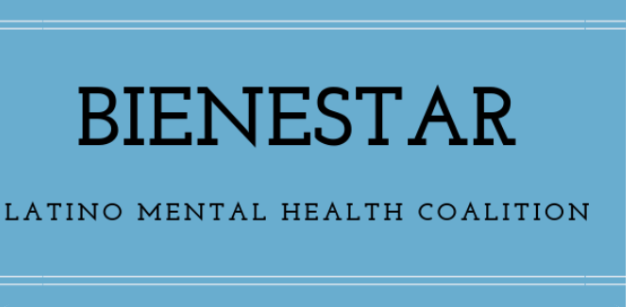
The Bienestar Latino Mental Health Coalition was born. It sought to provide education in order to increase accessibility to mental health resources within the community and to destigmatize mental health concerns and treatment.
“Bienestar” is the Spanish word for “well-being.” When we talk about being “well,” we are not only referencing finding help and healing from mental illness. We are also talking about the following:
— learning how to manage stress and disappointment;
— “wellness” in all areas of life that directly affect our mental health, including our physical health, our spiritual/emotional health, and our relationships;
— having all of our daily needs met;
— finding healing in the midst of loss, finding new ways of coping, and learning that our mind and our bodies are so interconnected that the two cannot be separated, and we must honor and care for both.
We felt “Bienestar” was a holistic, all-encompassing word to describe what we hope to share with the Latino community.
As the newly formed coalition began to consider what its impact might be, it saw an opportunity to reach out to local churches and provide mental health information to their congregations. In the early years, outreach included monthly coalition meetings and an annual one-day workshop on various mental health topics for pastors.
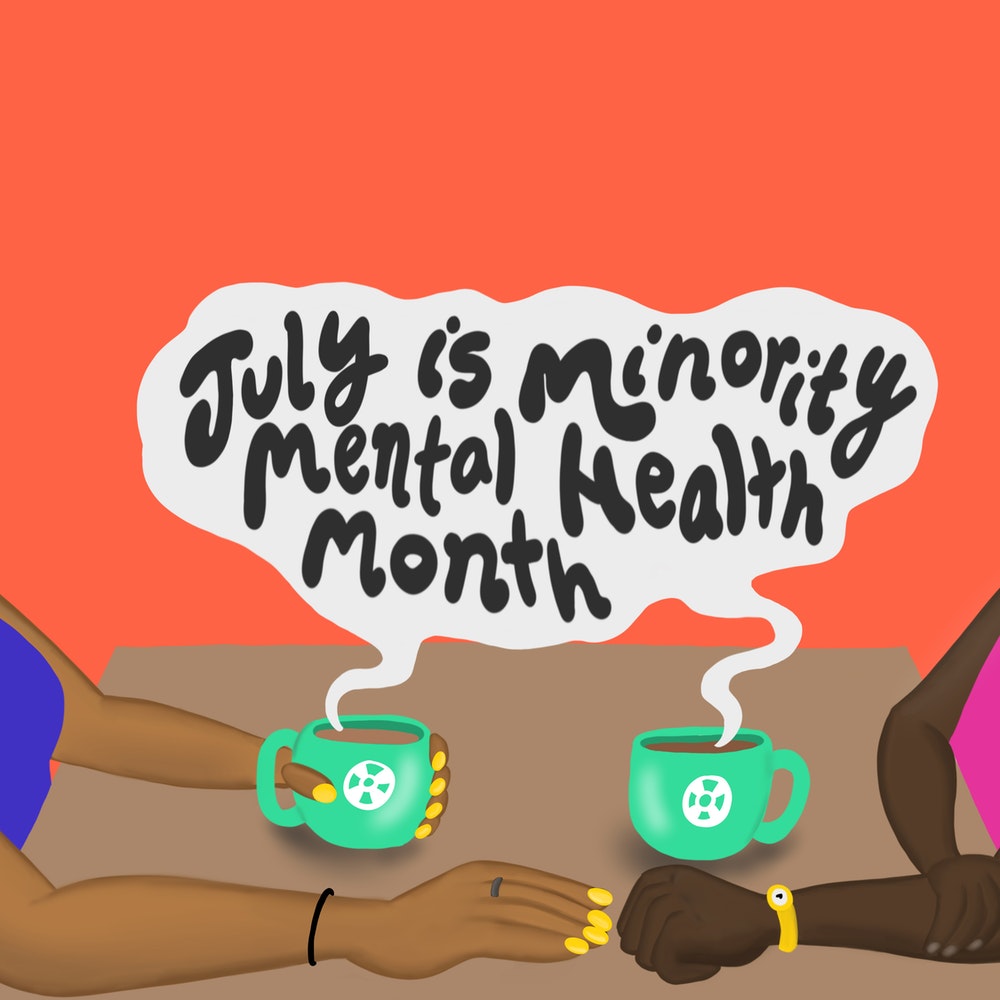
As the coalition continued to grow, the group decided to take a more direct approach by going into churches upon invitation and providing educational workshops on mental health to the congregants. This strategy has proved successful and the coalition has been able to reach a larger number of people this way.
All workshops are offered in Spanish, as well as English, in order to ensure that language is not a barrier to learning about mental health and receiving information about services in Spanish within the community.
As the coalition continues to expand its capacity and reach, we hope to build more relationships in various sectors in order to reach even more people within the Latino community.
Mental health resources offered in Spanish are very limited in Waco; currently you can count on one hand the number of Spanish-speaking therapists here. With such little access currently available, the coalition hopes to provide up-to-date information about mental health and the Spanish-speaking mental health services that do exist in the community, as well as partner with other organizations and universities to work toward increasing the number of Spanish-speaking helping professionals available.
The coalition is composed of incredible people who volunteer their time to do this meaningful work, and all services we provide are free. Most of our work is being done virtually for the time being due to COVID-19. We have big dreams for the coalition, and we continue to plan for ways in which we can better serve and care for our Latino community.
To connect with us, please visit us at Bienestar Latino Mental Health Coalition on Facebook or email us at [email protected].
We are always happy to welcome new members to the coalition, as well as to talk with you about ways in which we can partner to offer workshops on mental health related topics.
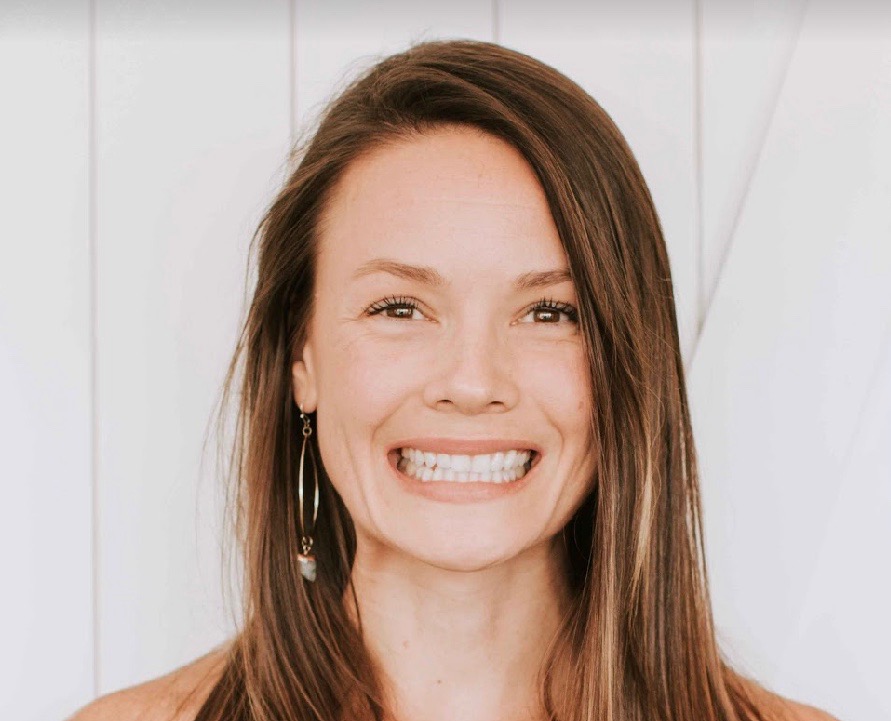
Joy Pfanner is a Licensed Clinical Social Worker in Waco. She assists Ana Chatham, LCSW, with managing Bienestar Latino Mental Health Coalition. Joy has many years of experience providing both clinical and non-clinical social work services to the Spanish-speaking community. Joy holds bachelor’s and master’s degrees in social work from Baylor, and prior to moving back to Waco, she spent about three years living internationally in Spanish-speaking countries.
The Act Locally Waco blog publishes posts with a connection to these aspirations for Waco. If you are interested in writing for the Act Locally Waco Blog, please email [email protected]for more information.
From The Heart of Texas Region MHMR
Most teenagers strive for independence, want to be with their peers, and are looking ahead to the future. Given this, how do we care for young people during this time, when they aren’t able to hang out with their friends and whose plans may have been cancelled or postponed by the coronavirus? Below are some strategies that might help to address these unexpected parenting challenges, especially at a time when many adults are struggling to hold it all together.
Make Space for Disappointment and Sadness
Teenagers everywhere are facing losses. Once-in-a-lifetime events, such as, graduations, sporting events, and proms have either been cancelled or drastically modified. Performances and competitions for which teenagers have been preparing for months, if not years, have been cancelled overnight. While schools and teachers struggle to get coursework online, gone are the clubs, teams, and other interactions that many students enjoy.
Though we can’t replace what’s been lost, adults should not undervalue the power of offering empathy to discouraged adolescents. In addition to feelings of anxiety around COVID-19, teenagers may be feeling sad, angry, and frustrated about what has become of their year. Words of understanding or empathy might include, “I hate that you have lost so much so fast and I am sorry this has happened. You’ll get through this, but that doesn’t make it any easier right now.” When it comes to addressing painful feelings with teenagers, offering compassion can help pave their way toward feeling better.
Make Space for Relief and Joy
The same teenagers who may be feeling upset about missing school and their peers, may also express some feelings of relief. As much as they are grieving their losses, they may also be relieved at getting out of some commitments they never wanted to keep, or interactions with classmates, teachers or coaches that may have been negative in the past. We might say, “It’s OK to feel relief now too,” while reassuring teenagers that embracing the upsides of the disruption does not minimize what they’ve lost or their worries about the impact of the virus.
Expect Friction Regarding Their Social Lives
If you’re a parent who is sticking to the social distancing guidelines, your teenager is probably already frustrated with you, as some parents are still allowing their kids to hang out as usual. To address this we might say, “I know that other parents are still having kids over, but we can’t support that choice because it doesn’t fit with what the official safety recommendations are.” From there, we can let our teenagers know that when turning down invites they are free to blame us, and that if local safety guidelines allow, we’re open to their suggestions about how they might get together with friends outdoors, six feet apart.
When adolescents can’t see their peers in person, it seems only fair to loosen the rules on how much time they spend connecting online. But all bets aren’t off. Now, as always, rules are still in order to keep digital technology from undermining essential elements of healthy development. Sleep, productive learning, physical activity and face-to-face interactions (even if only with family members for now) should not be crowded out by life online.
Allow Privacy and Time Alone
Of course, few adolescents will want to spend all of their new at-home time with their parents or guardians. Teenagers who are formally quarantined, under shelter-in-place orders, or simply practicing social distancing will need and deserve privacy and time alone. Make it clear that you welcome your teenagers’ company, but don’t take it personally if they want you nearby but quiet, or if they want to spend time in some other private space in your home.
Think about approaching your teenager with an extra measure of thoughtfulness when making requests. For example, saying, “We’re going to need you to supervise your sister for a couple of hours, but we know that you have plans too. How should we do this?” might be a good place to start.
Treat Teenagers as Problem-Solving Partners
As we struggle to figure out new rules, systems and routines for daily living, let’s remember that adolescents are usually at least as resourceful as adults. Don’t hesitate to ask teenagers’ help. We could say, “We’re all having to invent new ways to arrange our days. Can you show me what you have in mind so that I can get a feel for your regular schedule and make sure you’re covering all your bases?”
The school year is ending, summer is nearly here and there is a lot we still don’t know about how that will unfold for our teenagers, but there are some truths about adolescents that can help us through this difficult time: they welcome empathy, they are resilient and adaptable, and they appreciate — and tend to live up to — high expectations.
By Bill Baily, President and CEO of Cenikor Foundation
As the country learns to fight the coronavirus, the opioid epidemic has slipped back to the shadows. Just a few months ago, that epidemic was taking almost 200 lives per day, 67,367 in 2018, and had become a household topic. Taskforces, committees, legislators, communities and treatment providers were standing together to help make resources available for those that found themselves suffering from addiction issues.
We are facing a time of unprecedented stress and unknowns. Unemployment is rapidly rising. Social distancing brings the psychological fallout of isolation. It is vitally important, now more than ever, to the health of our nation to ensure that treatment is available and accessible. Times of high stress bring with them an increase in alcohol and drug use and abuse which compounds the issues that our families and communities are already facing. According to a National Institute on Drug Abuse report following the terrorist attacks of 9/11, “stressful times are particularly difficult for those who are more vulnerable to substance abuse and stress. Stress is one of the most powerful triggers for relapse in addicted individuals, even after long periods of abstinence”.
As we all know, hospitals are dealing daily with the pandemic and we are so grateful for the doctors and nurses showing up every day. A lesser known fact is that as stay at home orders have been issued across Texas, substance use disorder services have been designated essential services. This further emphasizes the necessity for those struggling with addictions to be able to receive the services they so desperately need. At Cenikor Foundation, we have been serving a community in the crisis of addiction for over 53 years and continue to meet the challenge through this crisis. True to the trends we have seen in previous crises, we continue to see a steady stream of calls for help. Our staff have risen to the challenge to provide safe environments for those seeking services and continue to provide daily the care that is necessary to save the lives of those suffering from addiction. We are honored and privileged to continue being a place for change during, through, and after this national crisis. Whether you or someone you love is searching for detoxification, short term residential/inpatient or outpatient treatment services in the Waco area, and whether you are insured, uninsured or under-insured, we can help. For every unique situation, there is a door to successful recovery, there are resources available and it is the right time to ask for help.

Bill Bailey has served as President and CEO of Cenikor Foundation since 2004. Through Bill Bailey’s 16 years of leadership, Cenikor has provided strategic guidance, igniting a successful cycle of growth in geographic scope and treatment services within Cenikor’s full continuum of care. Bill’s commitment to Cenikor and the overall behavioral health community is one of long-term success, focused on Cenikor raising public awareness in the areas of treatment, prevention and education, and continuing a progressive movement on a national level.
From your Heart of Texas Region MHMR (For more posts in this series, click here: Mental Health in the Time of Corona Virus)
Children are being flooded with information about the Coronavirus (COVID-19) from a variety of sources. This is a unique situation that may leave parents questioning what to say to their children and how to address the possible emotional fallout from this concerning and anxiety-producing time in our society.
Children need to have important, factual, and appropriate information. They are likely receiving information from peers, adults, social media, and news outlets. We know that not all of this information is accurate. Parents should provide accurate information in an effort to reduce possible confusion, fear and anxiety and to provide reassurance. Be careful not to provide too much information and keep it at a level that the child is able to understand.
Remain sensitive to your child’s mood, behavior, and any noticeable changes in regular patterns such as sleeping and eating. Some children keep their thoughts and feelings to themselves, while others act out their emotions. If you notice changes in your child, encourage them to express their feelings so you can explain and provide support. This provides safety and security for your child in the midst of difficult feelings and emotions.
Continue to have as much structure in the day as your time will allow. Life as your children know it has been disrupted probably more than any other time in their lives. They are not attending school, they may not be seeing friends, sporting events have been cancelled or postponed, and they may be staying home more. Structure can decrease the amount of anxiety a child may be feeling, and give them a sense of control.
Provide children with practices that decrease the chances of getting the virus. Inform your children of the Center for Disease Control’s recommendations on what safety steps can be taken to lessen the spread of the virus (e.g., washing hands frequently, using wipes to clean surfaces, not gathering in large groups, keeping distance from others, using proper means to cover mouth when coughing or sneezing). This will offer children a sense of control over the spread of the virus.
Be aware of your own responses to COVID-19. Children take signals from their parents. Try to be aware of how you are feeling and your own experiences around COVID-19, and how this can affect your child. Speak to a friend, spouse or other trusted person to talk about your concerns and anxieties. Don’t wait to feel overwhelmed by your worries to speak to others. Having ongoing discussion with others will help you with your own anxieties and in not feeling you are alone in your concerns.
MHMR Mental Health Hot line – 254-752-3451 or 1-866-752-3451 – 24 hours a day. For questions related to substance use challenges, call 254-297-8999. Call 911 for a life-threatening crisis.
From your Heart of Texas Region MHMR
During times like these taking care of yourself isn’t a luxury. It is essential. And during this difficult time, when stress is running high, it’s more important than ever. Here are five tips that can help:
Make time for yourself – Right now, much of the personal time that was part of our daily routines may not be available. Without it, we have to be intentional about creating space to recharge and decompress. This could look like taking a shower or bath, walking around the block, or designating time to read. Think proactively of things you can do with this enforced time at home. Get back in touch with hobbies or activities you enjoy but rarely have time for, or make the choice to learn a new skill.
Prioritize healthy choices – The added stress and loss of structure we are all experiencing right now can make it easy to slip into habits that feel good in the moment but can be detrimental in the long term. Make sure you’re eating properly, try to get enough sleep, and create a routine that includes physical activity. Be thoughtful and intentional about how you are treating yourself and your body.
Be realistic – Avoid burnout by setting realistic expectations and giving yourself grace if you can’t meet them. Practice forgiveness and self-compassion. There’s no playbook for this. Remember you are doing your best during a very difficult time. Cut yourself some slack.
Set boundaries – Anxiety may seem rampant right now. With so much worry and uncertainty floating around it can be easy to absorb other people’s fears and concerns without even realizing it. If you have a friend or family member who is in the habit of sending worst-case-scenario news or is prone to sending anxiety-provoking text messages, practice a little emotional distancing. Let them know you sympathize but that you’re taking a break from constant worrying. You can always reconnect when things are calmer.
Finally, remember, being kind to yourself will not only help you stay calm during this difficult time, it will help ensure that you have the bandwidth you need to take good care of yourself. When you prioritize your needs, you’re filling the tank, emotionally and physically, and that means you’ll be in a position to offer comfort and care to others when they need it most.
From your Heart of Texas Region MHMR
Natural disasters – including pandemics like the current Coronavirus outbreak – can seriously affect emotional health. Fear and anxiety about contracting a disease may feel overwhelming and may cause strong emotions in adults and children alike.
Intense Feelings Are Expected
Over the years the residents of the Heart of Texas Region have demonstrated remarkable resilience. Individuals, families, and communities impacted by the Coronavirus are taking proactive steps to adjust and adapt to the situation. The reaction to personal and financial stress created by the Coronavirus is different for each person. Though some may not need additional help, many may find themselves in need of extra support to help them cope with the changes to everyday living.
Talk About Feelings with Friends and Family
Talking about the way you feel, and taking care of yourself by eating right, getting enough sleep, avoiding alcohol, and getting exercise can help to manage and alleviate stress.
Take Care of Each Other
Check-in with friends and family members to find out how they are doing. Feeling stressed, sad, or upset is a common reaction to life-changing events. Learn to recognize and pay attention to early warning signs of serious problems.
Know When to Seek Help
Depending on their situation, some people may develop depression, experience grief, and anger, turn to drugs and alcohol, and even contemplate suicide. The signs of serious problems include:
- Excessive worry.
- Frequent crying.
- An increase in irritability, anger, and frequent arguing.
- Wanting to be alone most of the time.
- Feeling anxious or fearful, overwhelmed by sadness, confused.
- Having trouble thinking clearly and concentrating and difficulty making decisions.
- Increased alcohol and/or substance use.
- Physical aches, pains, complaints.
If these signs and symptoms persist and interfere with daily functioning, it is important to seek help for yourself or a loved one.
During this time, the Heart of Texas Region MHMR will continue to provide services to our customers and the community.
The safety of our community and our customers remain our top priority. If you are experiencing emotional distress related to the COVID-19 emergency, or for any other help, please contact the Heart of Texas Region MHMR Center 24/7 by phone or text at 1-866-752-3451
Additional Helpline:
The Disaster Distress Helpline, 1-800-985-5990, can provide immediate counseling to anyone who is seeking help in coping with the mental or emotional effects caused by developments related to the coronavirus pandemic.
The Helpline is a 24-hour-a-day, seven-day-a-week and free resource that responds to people who need crisis counseling and support in dealing with the traumatic effects of a natural or human-caused disaster. The Helpline is sponsored by the Substance Abuse and Mental Health Services Administration (SAMHSA). Helpline specialists are trained to assist callers who have a range of symptoms.
“People who have been through a traumatic event can experience anxiety, worry or insomnia,” said Dr. Elinore F. McCance-Katz, MD, Ph.D., who is the Assistant Secretary for Mental Health and Substance Use and who is the head of SAMHSA. “People seeking emotional help during an ongoing disaster such as a pandemic can call 1-800-985-5990 or can text ‘TalkWithUs’ to 66746 – and can find recovery and coping strategies.”
The Helpline immediately connects callers to trained and caring professionals from the closest crisis counseling centers in the nationwide network of centers. The Helpline staff will provide confidential counseling, referrals, and other needed support services. More on the Helpline is at http://disasterdistress.samhsa.gov/.
By Darryl W. Thomas, Jr.
I am a U.S. Marine (two-time) Wartime Veteran who was diagnosed with anxiety and depression. I know first-hand their terrible effects. It can feel like a big black hole at times, sending its victim into an endless spiral of dark times. Over the years, with adequate support and resources, I have drastically improved my mental health. Mentally, I am now in a healthy and peaceful place.
As I sit here, I can’t help but think about the uproar that this COVID-19 (coronavirus) pandemic has caused to echo throughout the world. Many are oppressed by fear, overwhelmed by uncertainty and overtaken by anxiety. During these times, it is natural to focus on self-preservation.
To focus on surviving is not a bad thing; however, to only focus on you is not exactly good, either. Particularly for those of us who are parents, it is important to remember that our children depend on us to model appropriate ways to handle stress and anxiety during tumultuous times such as these.
Healthy self-preservation includes mental health (the way you think, feel and behave) and spiritual wellness (guiding values, principles, morals and beliefs). In many stressful instances, people tend to merely react to a situation instead of responding to a situation. To react, simply, means to impulsively act based on something that happened. To respond means to deliberately act after giving thought to your guiding values, principles morals and beliefs.
I once heard a quote that said, “It’s not the load that breaks you down, but it’s the way that you carry it.” – Author Unknown
I agree 100 percent. In most cases, it isn’t the stress that brings us to our knees. Rather, it is the mismanagement of stress that does so.
As an At-Risk Interventionist, I have more than 20 years of experience working with at-risk youth, teens and young adults. In 2013, I founded a nonprofit called, The Size Of a Man ( www.SizeOfaMan.org ). Through this practice I have learned that healthy, thriving, meaningful relationships are crucial for young people. In addition to working with kids professionally, I have five kids of my own. As parents, we know all-too-well the importance of us maintaining a healthy, thriving relationship with our children. Also, we know that our children learn by example. It is our responsibility and in the best interest of our offspring that we learn to effectively manage stress.
When we, the parents, respond to the stressful times in a responsible manner, we teach our children to do the same. Depending on the strength of that parent-child relationship, our kids tend to follow our lead and respond to stress in the same ways we do.
So, during this global crisis, how should we manage our stress and self-preservation in a way that sets a good example for our kids? I have two suggestions:
Tip #1: Understand that your problems, stressors, and challenges have an expiration date. These difficulties will end, and the stress that they bring will subside if we choose to handle it responsibly. Hopefully this tip liberates you and helps you respond rather than react to your stress.
Tip #2: Remember that a closed mouth doesn’t get fed. Even as adults, there are times when we need help. Sometimes we really don’t have the answers to our problems. That’s fine. Be okay with admitting that and seeking out help from someone that you trust. Remember, if you fail to open your mouth and make it known to others that you need help, then you more than likely won’t get the help that you need.
In my humble opinion, this COVID-19 pandemic will soon pass, but the memories that you create during this time will likely outlive you. Don’t just react – Respond. Stay safe!

Darryl W. Thomas, Jr., affectionately known as Coach D, is a former at-risk youth turned U.S. Marine and Champion for the Underdog. With more than 20 years of experience working with the at-risk youth, teens and young adults, Coach D has dedicated his time, energy and life’s work to inspiring, challenging and empowering the underdogs to win in the face of adversity and hardships. He is a motivational speaker, published author, life coach, at-risk interventionist, and, most importantly, a family man. If you would like more tips on how to help your teen navigate through anxiety and depression, then checkout https://www.DarrylWThomas.com .
The Act Locally Waco blog publishes posts with a connection to these aspirations for Waco. If you are interested in writing for the Act Locally Waco Blog, please email [email protected] for more information.
By Jessica Wheeler-Macias
Over the last 6 years, a group of concerned community members has been striving to reduce substance use and misuse in Waco and surrounding communities. The Voices Against Substance Abuse, or VASA, community coalition consists of representatives from various community sectors, such as education, law enforcement, faith-based organizations, community services, substance abuse prevention programs, businesses, local government, volunteers, parents and youth, all working to reduce the use and misuse of tobacco, alcohol, marijuana and prescription drugs among youth and young adults. The coalition’s efforts in addressing these issues target the communities as a whole through the use of environmental strategies such as media campaigns, presentations and policy development.
The coalition is currently conducting a media campaign targeting a specific method of alcohol misuse: binge drinking. For clarification, we’ve provided answers to some of the most frequently asked questions regarding binge drinking and its effects.
What is binge drinking?
The simplest answer to this question is that binge drinking is the consumption of an excessive amount of alcohol in short period of time. However, the Substance Abuse and Mental Health Services Administration (SAMHSA) defines binge drinking as the consumption of 5 or more standard drinks for men and 4 or more standard drinks for women in a single setting at least 1 day in the past 30 days. A standard drink would be 12 ounces of beer, 8 ounces of malt liquor, 5 ounces of wine or 1.5 ounces of 80 proof distilled spirits of liquor.
How dangerous is binge drinking?
The Center for Disease Control and Prevention has identified binge drinking as the most common, costly and deadly pattern of alcohol misuse. Alcohol affects many of a person’s vital functions, leading to slurred speech, unsteadiness, altered perceptions and slow reactivity. For a young person, alcohol can alter the development of their brain, causing lasting damage to memory, motor skills and coordination. The amount of alcohol consumed and how quickly it is consumed, amplifies the amount and onset of the effects of the alcohol. Binge drinking is associated with many health problems, such as accidental injuries, violence, sexually transmitted diseases, unintended pregnancy, chronic diseases, cancer, memory and learning problems and alcohol dependence. Binge drinking is a serious problem, but it is preventable.
Who is binge drinking?
According to the CDC, 1 in 6 US adults, most commonly between the ages of 18 and 34, binge drinks about four times per month, consuming about 7 drinks per binge. That’s 17 billion total binge drinks consumed by adults annually. However, it’s not just adults that are binge drinking. The CDC’s Youth Risk Behavior Survey-2017 states that, nationwide, 13.5% of high school students were binge drinking.
Is binge drinking the same as alcoholism?
Alcoholism, also known as alcohol dependence, is a chronic disease that affects all aspects of a person’s life and continues despite serious health, legal and family problems. Binge drinking is a harmful pattern of alcohol misuse that can contribute to alcohol dependence but can be stopped.
How can binge drinking be prevented?
There are several environmental strategies that can help prevent the excessive use of alcohol, including:
- Pricing strategies, such as increased alcohol taxes;
- Limiting the number of alcohol retailers and the days and hours of alcohol sales;
- Consistently enforcing laws against underage drinking and impaired driving; and,
- Screening and counseling for alcohol misuse.
However, the first step is educating individuals and communities about the dangers of alcohol use and misuse through presentations, media and substance abuse prevention programs.
Jessica Wheeler-Macias is the Voices Against Substance Abuse Community (VASA) Coalition Coordinator a program of VOICE.

Jessica has worked in the field of drug prevention education for the past five years and has a decade of experience working as a certified elementary school teacher in the State of Texas. She is the mother of 9- year-old Max Macias and 8-year-old Will Macias. Drug Prevention and community partnerships are her passion and she is happy to assist in providing your groups with presentations, booth events, as well as collaborate with your organization to create fun drug-free community events.
For more information, resources, to schedule a presentation or if you are interested in joining the Voices Against Substance Abuse (VASA) coalition please contact VOICE at 254-741-9222 or [email protected].
The Act Locally Waco blog publishes posts with a connection to these aspirations for Waco. If you are interested in writing for the Act Locally Waco Blog, please email a[email protected]for more information.
By Jeni Janek
“Counselors were on campus today in response to….”
We’ve heard it a hundred times in the media and cringe at the stories that follow these words, reporting the loss of yet another youth to the tragic phenomenon of suicide. What most do not realize is the impact and response that ensues and the taxing amount of time and emotional capital spent by educators and school personnel on campus who comfort survivors, wade through the shock and try to find answers that rarely come.
When a tragedy such as student or school employee death occurs (whether it be a suicide, accident or of natural cause) Education Service Center (ESC) Region 12’s Crisis Response Team launches into immediate action to serve on-site and/or behind the scenes to help those who are caring for their students and colleagues. Our kids grow up in our Texas schools, and a school is one big family–a loss is felt across campuses and reverberates in the community.
ESC Region 12 employs specialists whose job is to do one thing: serve educators and students. There are one-to-one counterparts for nearly every role in the typical school environment. Their duties range from conducting professional development to designing resources for school personnel as they instruct and care for the 161,000 school children in our region each day. One area of this work is to help our schools in their greatest time of need: when they lose a student or an educator.
In the last seven years, ESC Region 12 has worked in this role with others to ensure that school leaders and their teams have the resources and support needed to resume operations in the wake of fatalities. Suicide has been the number one reason that the ESC Region 12 Crisis Response Team responds to schools in our region. It has become an epidemic not only in Central Texas but in our state. The national average for suicide attempts among teens is 7 percent (according to the CDC’s Youth Risk Behavior Surveillance Survey, 2017), while Texas sits at 12 percent.
While suicide is an epidemic, it is a preventable one. It’s for this reason that the Education Service Center Region 12 has hosted the Teen Suicide Prevention Symposium for the last 14 years. ESC Region 12, Cedar Crest Residential Treatment Center, Providence Ascension Healthcare Network and the Methodist Children’s Home will present this year’s symposium on Thursday, June 13 at ESC Region 12, 2101 W. Loop 340 in Waco.
Medical and mental health speakers will share research and strategies for helping youth who struggle with suicidal ideation.
Social media continues to be a factor in teen suicide, but efforts to raise awareness about healthy practices and reporting options are making a difference in Central Texas schools. How else as a community can we make a difference? We can bring people together to discuss and implement strategies and resources that will help keep our kids safe. Educators may often be the first to see signs, but we as a community must reach out and offer more than supportive words.
Our children are living during an unprecedented age of technological advancement and interaction, but are still needing strong relationships (in school and in their communities) to help them grow up to be safe and healthy adults. They are depending on us to help them navigate challenges and not just survive, but to thrive.
Seats are available for $90 a participant, which includes a light breakfast and lunch. Click here to register: Suicide Symposium.
ESC Region 12 is a nonprofit service organization devoted to supporting educators and school personnel in their efforts to increase student achievement. We are passionate about helping schools of all sizes through effective professional development, expert assistance, direct services and alternative certifications. Click here for more about ESC Region 12.
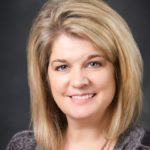
Jeni Janek is the ESC Region 12 Crisis Response Team Leader and serves school counselors in the Region 12 area. She is a graduate of Stephen F. Austin with a Bachelor of Science degree in Rehabilitation and Psychology and received her Master degree in Counseling Psychology from Tarleton State University. Janek is a certified school counselor and a Licensed Professional Counselor (LPC). Jeni and her husband Chris live in West with their son, Trey. Their daughter, Mary Kate, is a junior at Texas A&M. Janek enjoys traveling, being outdoors, and relaxing on the back porch of their country home with her faithful dog, Beau.
The Act Locally Waco blog publishes posts with a connection to these aspirations for Waco. If you are interested in writing for the Act Locally Waco Blog, please email [email protected] for more information.
By Maggie Sanders
June 21 is the day with the most light, and that’s when the Alzheimer’s Association shines light on this sad disease that robs loved ones of memories and personality. But when you’re caring for someone with Alzheimer’s or another dementia, every day can seem to last more than 24 hours.
My mom, Vivian Benson Sanders, is living with one of the severe dementias associated with Alzheimer’s disease. At 15, she was offered a full scholarship to Rice University – located less than two miles from her home – but her father refused his permission for her to attend. Now 94, she still painfully recalls how he stole her future.
But she doesn’t recognize me, my brothers or our children. Nor does she recall that my father passed six years ago and that our middle brother died two years before. She can’t remember how to walk and struggles with all activities of daily living. This scary smart lady who treasured words like precious jewels is losing her grasp of language, and our conversations are becoming a hodgepodge of unrelated and often unintelligible words and phrases.
When it became obvious four years ago that Mama could no longer live independently, our family decided to move her from Bryan, where my brother Ray had been looking after her, to Waco. At that point, I became her primary caregiver and began juggling work, my own family and other interests with meeting her needs. These have increased over the years, so two years ago I retired from the part-time teaching job I loved to be more available.
Fortunately, my mom is in a good memory care facility, but I still spend a lot of time and energy with her. She’s among the nearly 400,000 Texas adults over 65 who have Alzheimer’s disease or other forms of dementia. And I am just one of the approximately 1.5 million family members and friends caring for a loved one in the same situation.
The care takes its toll on our bodies, minds and spirits — and drains family finances. In Texas last year, caregivers provided approximately 1.6 billion hours of unpaid care with a total value of $20.5 billion. We deal with stress, lack of sleep and lack of support. We are reminded to take care of ourselves, but that doesn’t always seem possible.
My caregiver’s journey has been eased thanks to the local Alzheimer’s Association chapter. Even before I moved my mom to Waco, I had helped with the annual Walk to End Alzheimer’s, and that helped me tap into some of the resources the group offers. I’ve since attended several support groups and the annual caregivers conference. I continue to work with the walk committee and try to volunteer with other projects as needed.
Locally, the Waco Chapter of the Alzheimer’s Association provides a range of caregiver support groups where family members can meet others sharing similar situations.
- Heart of Waco Caregiver Support Group, 6-7 p.m., Second Monday of each month at Heartis Waco Assisted Living and Memory Care. Contact Donna Ginsel at 254-717-4805 or Bobby Don Saylor at 940-595-9355.
- Hillcrest Senior Health Center, 10-30-11:30 a.m., Second Wednesday of each month at the Hillcrest Senior Health Center. Contact Renee Shepherd at 254-537-3731 or Laura Ellis at 254-202-6500 or Bobby Don Saylor (above).
- Early Stage Support Groups. Separate sessions allow Caregivers and Persons with Disease to meet separately for support, information and socialization. Prescreening is required. Contact Christine Schroeder-Moran of the Waco Alzheimer’s Chapter at 254-754-7722.
- The Gathering Place provides social interaction and support for caregivers and their loved ones. The program meets from 10-11 a.m. the first Tuesday of each month at Austin Avenue Methodist Church. Contact Sandi Snowden at 713-553-7061, Pam Butler at 254-755-2248 or Bobby Don Saylor (above).
- The annual Caregivers Conference, always the first Friday in March, is an excellent opportunity to hear about the latest research and to gather tools you can use in your own journey.
- This year’s Waco Walk to End Alzheimer’s will be Saturday, October 5, at Brazos Park East.
To learn more about these resources or to ask questions, contact the Waco Chapter Alzheimer’s Association at 254-753-7722 or alz.org/northcentraltexas
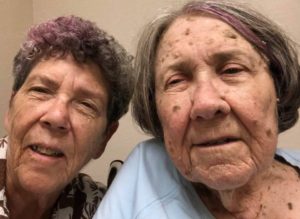
Maggie Sanders is a freelance artist and writer. She retired from McLennan Community College, where she worked in the public information office and taught marketing.
The Act Locally Waco blog publishes posts with a connection to these aspirations for Waco. If you are interested in writing for the Act Locally Waco Blog, please email [email protected] for more information.
